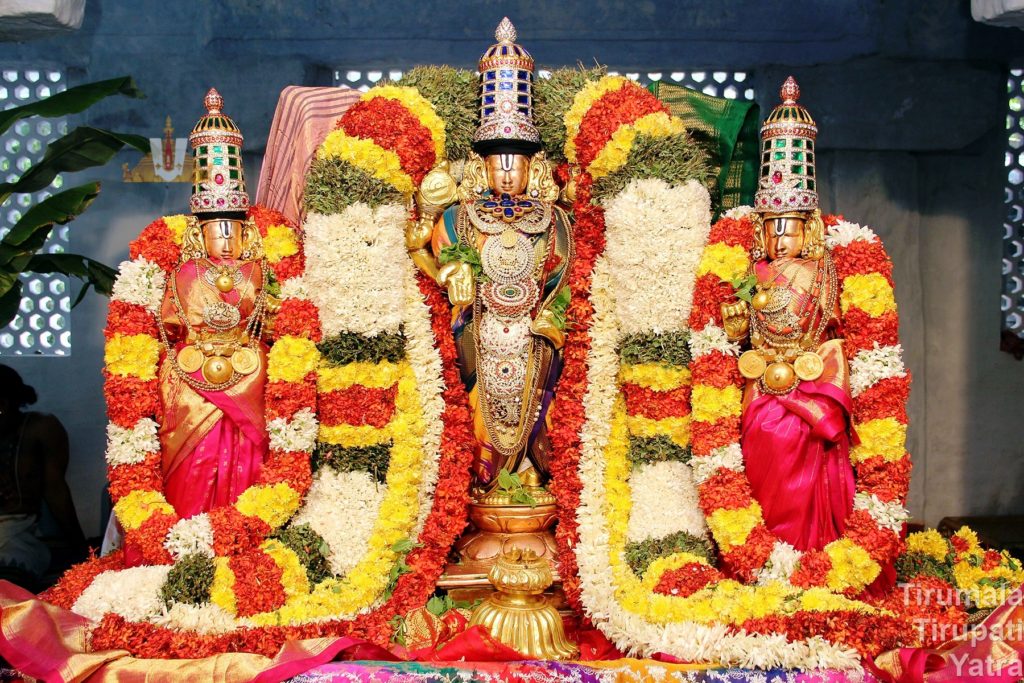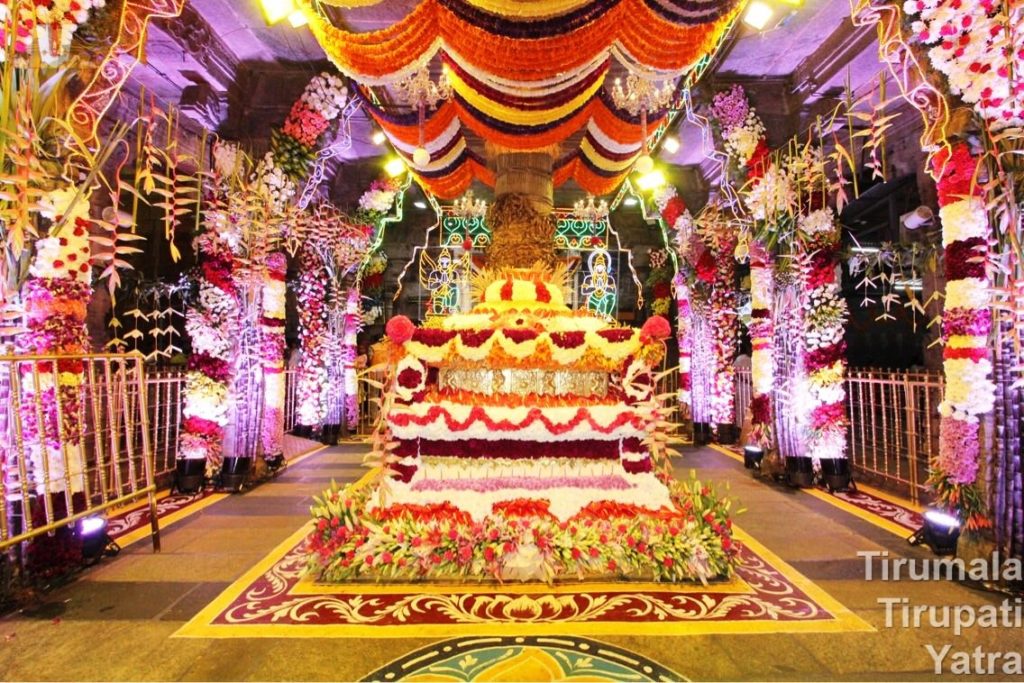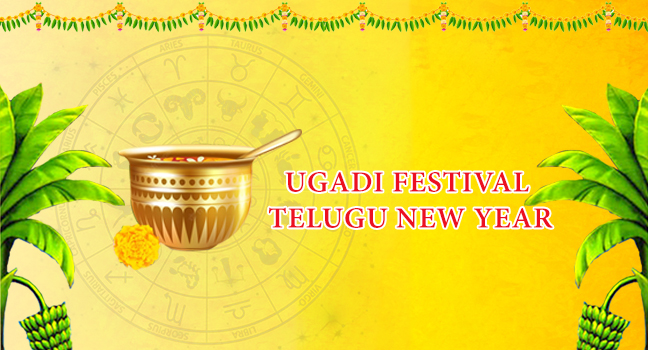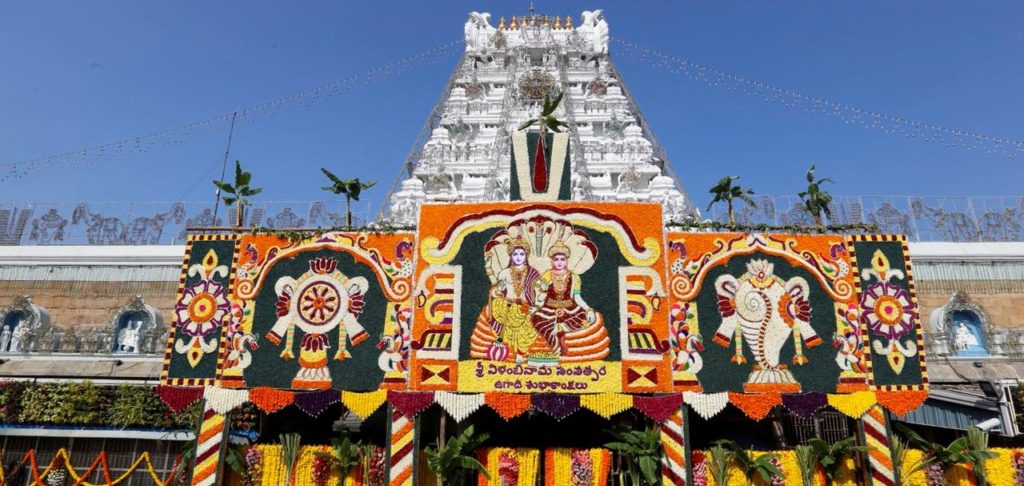An offering of the Special Garments
Six sets of New Silk Garments are carried from the Parimalapu Ara by the side of Yoga Narasimha Swami’s shrine. Sri Pedda Jiyyangar the rolls of the Six large and long silk garments keeping in a big silver basket, bearing on head brings to the Srivari Sannidhi.
In this process, the Vedic Scholars chant Vedic Hymns. The musicians play on auspicious musical instruments. Some servants hold the Panchamuka Torches in their hands and show the path. Near the golden Threshold, the Sannidhi Golla (The Royal Cowherd of Lord Srinivasa) stands holding a Torch in his hands.
Once the garments are brought inside Four of them are offered to the Mula Virat or the Main Deity.
Out of the four,
- one is offered to the Crown,
- the second one to the Nandaka Sword,
- the third one as Tomala, and
- the fourth one is decorated as Uttariya.
After unveiling the curtain, Holy Harati is offered to Sri Venkateswara. All the officers and other devotees who present there receive the Harati, Tirtha, Chandanam, and Satharis. After this process, the rest of the two garments are respectively offered to Sri Malayappa Swami and Vishvaksena.
Then the holy Akshatas are sprinkled on Malayappa Swami and Vishvaksena.

Priests Receive Danam from Swami varu
The next event of the ritual Matradanam which consists of some amount of Rice Grains, Dakshina Amount, and Tambulam (Betel Leaves and Nut powder) are offered to the Priests.
The Priests in return bless Lord Srinivasa with the words “Nityaisvaryo Bhava” (Be the Richest forever). Blessing Swamivaru by the priests is an exclusive event that can be seen only in the Daily Koluvu and this Asthanam at Tirumala.
The Chief priest is adorned on the head by the Foot Garment of Lord Srinivasa which is called ‘Parivattam’ and pays respect to Sathari.
Panchanga Sravanam
- Then the Royal Assembly of Srivaru commences. In the royal assembly, the Royal Astrologer is assigned the duty of Reading the New Lunar Year Panchagam taking it from the holy feet of Lord Sri Venkateswara.
- First, he begins with reading the Tithi, Vara, Nakshatra, Yoga, and Karana of the Day.
- Then starts to give the details, the Results and effects of the New Year, Gains and Losses, the Planetary positions and their effects, the growth of crops and animal husbandry, and other calendar-related matters.
- The Kandaya Phalams and the Respect and Disrespect of all those who are born in the 27 stars are read.
- The God Srinivasa is humbly requested to be more kind towards all the worlds of devotees making all of them more happy, rich, and comfortable throughout the year.
- The Siddhanti receives the Sathari respect from the priests. The priests offer the details of the income and expenditure of the year just passed to the Great God Srinivasa.
* Source: Saptagiri Magazine



